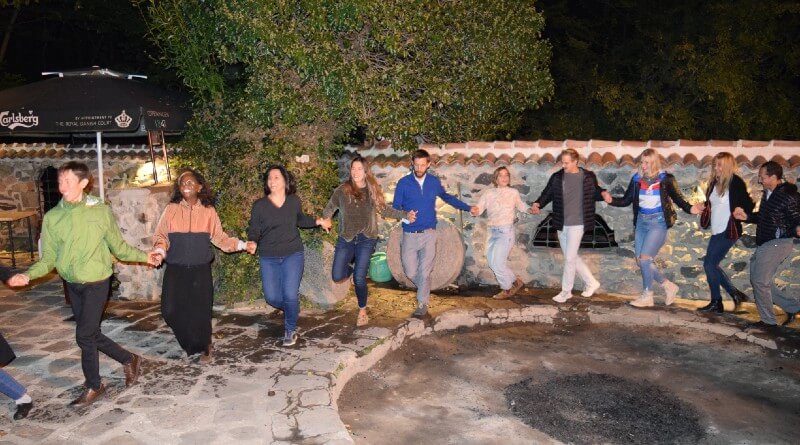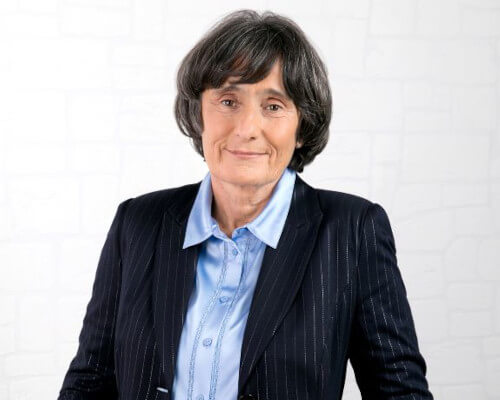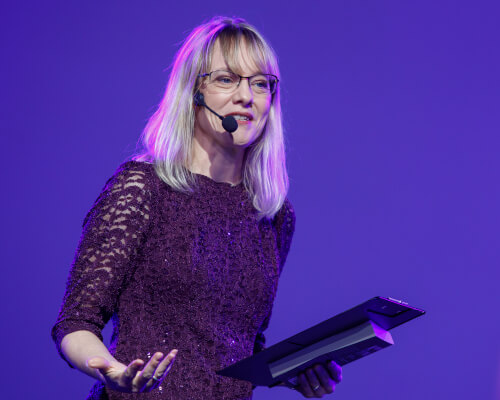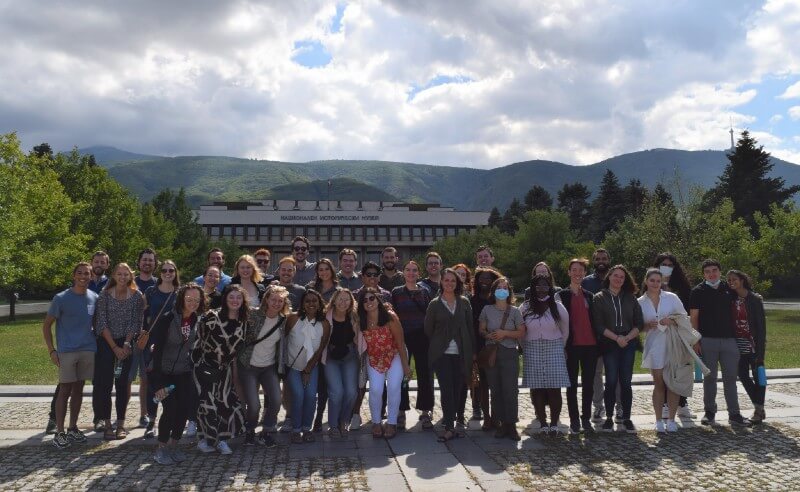
Language is best learned through immersive interaction and personal connections with native speakers. To give Bulgarian kids an immersive experience, every year, the Bulgarian-American Commission for Educational Exchange, better known as Fulbright Bulgaria, places some thirty young Americans in schools around the country.
In addition to helping their Bulgarian students understand finer points of English grammar and the difference between “take up” and “take down” (and why they are not exactly opposites), Fulbright’s English Teaching Assistants, or ETAs, serve as ambassadors of their country and home communities. Through interaction with them, students learn about US culture and traditions, such as the practice of community activism, and, yes, they often emulate their teachers’ linguistic peculiarities.
In return, ETAs absorb a bit of Bulgarian culture, taking it with them when they move on to their subsequent lives and careers.
After a year’s pause, due to the pandemic, ETAs are back, and with them the joy of learning English in that most natural way — through informal conversations with people not much older than yourself and involvement in socially meaningful extracurricular activities.
Meet Benjamin, Amanda, Chase, and Mahie, who will be spending the next year working with communities in Plovdiv, Galabovo, Panagyurishte, and Ruse and learning that the right way to turn down a second helping of shopska salad is… to nod!
It’s a small but important part of cultural exchange.
Fulbright Bulgaria’s English Teaching Assistantship program is supported by the America for Bulgaria Foundation and corporate partners such as ContourGlobal Maritza East 3, Assarel-Medet, Opticoelectron Group, and the Bulgarian Memory Foundation.
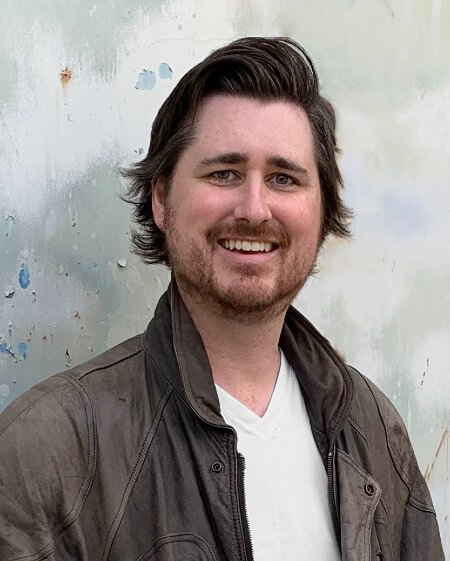
Name: Benjamin Custer
Age: 32
Home state: Arizona
Education: PhD (2020) in communication with a minor in psychology from the University of Arizona; MA (2014) in communication from Stanford University; and a BS (2011) in mass communications from Texas A&M University – Texarkana
School Assignment: Plovdiv’s Paisiy Hilendarski University
Why did you choose Bulgaria as your living and teaching abroad experience?
To start, I desired to live and teach somewhere in Europe. While researching various European countries on the Fulbright US Student Program’s website, I noticed that Bulgaria was seeking applicants who could both contribute meaningfully to English language instruction in its schools and support the activities of the Bulgarian English Speech Tournament (BEST) Foundation. This intrigued me because I had honed my public speaking/persuasion skills as an undergraduate student, and I had taught several undergraduate courses in public speaking/persuasion as a PhD student. After further researching Bulgaria’s rich history and culture, I knew that it was the placement for me.
What do you hope to convey to the young people you will be working with?
Although there is value in using proper spelling and grammar (I should know because I’ve spent years working as a copy editor), I believe that no aspect of learning a second language is more important than being able to use it to simply interact with people who speak that language. So, to the students learning English: try not to allow the quest for perfection to hurt your confidence to express yourself and build relationships with English speakers. I speak from experience when I say that, for the most part, we can easily fill in the gaps and help you with more significant spelling and grammar mistakes as needed/wanted.
What do you hope to gain from the program?
For the past several years, I have participated in a number of diversity, equity, and inclusion training opportunities. Commonly discussed has been the phenomenon of ethnocentrism, which is the misguided tendency to evaluate the world from the perspective of one’s own culture. Although I have traveled outside of the US before, I have never stayed in those countries for more than a couple of weeks. I hope that this immersive yearlong experience in Bulgaria will allow me to develop a more dynamic perspective of the world that will benefit me and those around me for the rest of my life. In the process, I hope to help my Bulgarian students, colleagues, and friends enhance their knowledge and perspectives by teaching them more about the English language and American culture.
Is there a social cause that you champion and that you’d like to pursue here in Bulgaria?
I feel strongly about not allowing our smartphones to displace quality face-to-face interactions essential to honing interpersonal skills (i.e., listening, empathy, nonverbal cues) that promote the development and maintenance of meaningful human connections. I have covered this topic as a journalist, published academic journal articles about this topic as a communication scholar, and broached this topic numerous times as a family member, friend, colleague, and instructor. Here in Bulgaria, I hope to at least continue the conversation and raise awareness on a person-by-person and class-by-class basis when relevant and appropriate to do so.
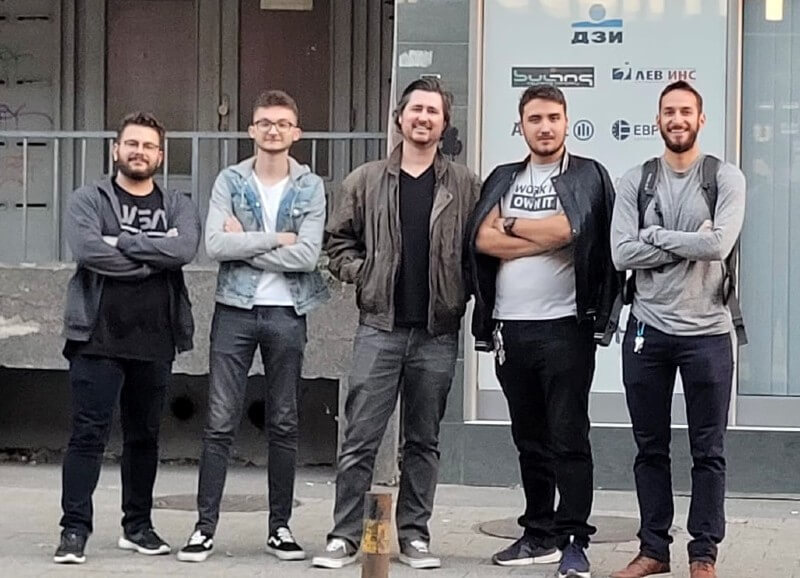
First impressions of Bulgaria
Bulgaria is home to warm and welcoming people, delicious cuisine, and a spectacular array of natural and historical landmarks. So far, my experiences here have been everything I hoped for and more.
First word you learned in Bulgarian: Добър ден!
Please finish the sentence: Before coming to Bulgaria, I never thought I’d… meet a person who would quickly become one of the better friends I’ve ever had, within a couple of days of moving into the dorms at Plovdiv University, take a weeklong trip with him to Vidin (his hometown) within a few days of meeting, and experience eating shopska salad with fresh veggies that we picked from his mother’s garden, dining on a ship on the Danube River, exploring Baba Vida and Belogradchik Fortresses, traversing Magura Cave, watching a symphony orchestra perform at a concert hall (and having the opportunity to play the grand piano afterwards), and returning to Plovdiv in time to summit most of its famous hills before my classes even started.
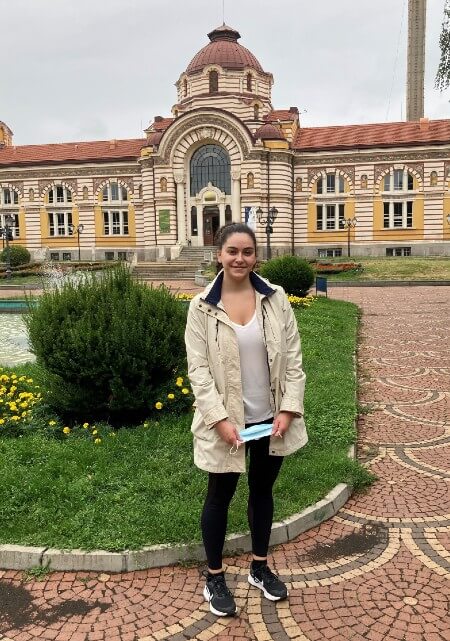
Name: Amanda Adinolfi
Age: 24
Home state: New York
Education: BA in international relations from Saint Joseph’s University
School Assignment: Professional High School of Energy and Electrical Engineering in Galabovo
Why did you choose Bulgaria as your living and teaching abroad experience?
I chose Bulgaria because I am very interested in the country’s history and culture. I am also very interested in the Bulgarian Language.
What do you hope to convey to the young people you will be working with?
I hope to convey that they are capable of doing anything they put their minds to! I also have always had an interest in learning about different countries and cultures and I hope this is something I can share with my students.
What do you hope to gain from the program?
I hope to learn as much as I can about Bulgarian culture and hopefully a few recipes as well. I also hope to become proficient in Bulgarian.
First impressions of Bulgaria
Bulgaria is a beautiful country! This is my first time living so close to mountains and am really enjoying it. I also find the people to be very kind and welcoming!
First word you learned in Bulgarian: Моля и благодаря
Please finish the sentence: Before coming to Bulgaria, I never thought I’d… like tomatoes! I never really liked tomatoes before, but the fruits and vegetables are so good here!
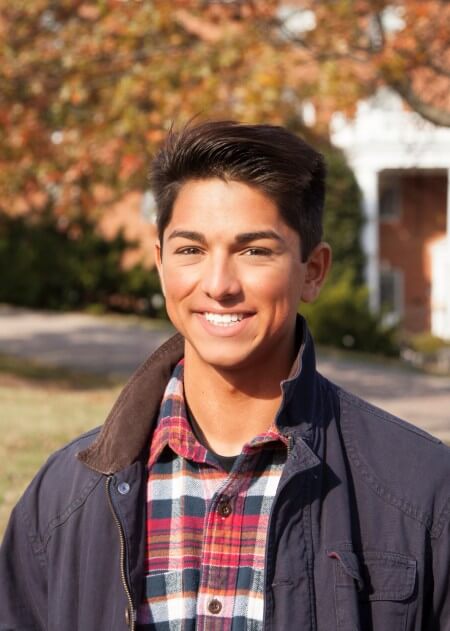
Name: Chase Forster
Age: I just turned 22 in early September
Home state: I grew up in southern New Mexico and went to high school and college in Virginia.
Education: BS (2021) in biology from the University of Mary Washington in Fredericksburg, Virginia
School assignment: Professional School of Industrial Technologies, Management and Tourism in Panagyurishte
Why did you choose Bulgaria as your living and teaching abroad experience?
Bulgaria has such a wide range of landscapes within its borders, which I would really like to see, from the beach to valleys and mountains and even a desert.
What do you hope to convey to the young people you will be working with?
My ultimate goal is to inspire children to enjoy learning. Whether that is English in my classroom or mathematics or science or music, learning is the foundation for growth, and having a teacher to promote growth can help someone reach their full potential.
What do you hope to gain from the program?
This program has provided me with an opportunity I could never afford for myself, and that is an established position within the Bulgarian community, which easily allows for full immersion and an authentic Bulgarian experience. I hope to gain a more global perspective on how the world works and why people say or think a certain way.
Is there a social cause that you champion and that you’d like to pursue here in Bulgaria?
A social cause I hope to promote is mental health awareness. I want my students to know that it’s ok to struggle with a pain that isn’t physical and that there are techniques to maintain positive mental health and limit stress and anxiety. I believe the medical community, as a whole, is overcoming the stigma around mental health. This evolution is not necessarily translating to all other social interactions such as schools and the workplace. I hope to spread awareness to everyone about mental healthcare and how easy self-care can be.
First impressions of Bulgaria
There is no such thing as a bad meal in Bulgaria. I have only eaten good food since I have arrived. From banitsa and musaka to shopska salad with rakia, everything is delicious. The people are also very nice and welcoming even when I am struggling with the language barrier.
First word you learned in Bulgarian: Наздраве!
Please finish the sentence: Before coming to Bulgaria, I never thought I’d… be able to successfully have as many daily interactions in a foreign language as I have been able to this far.
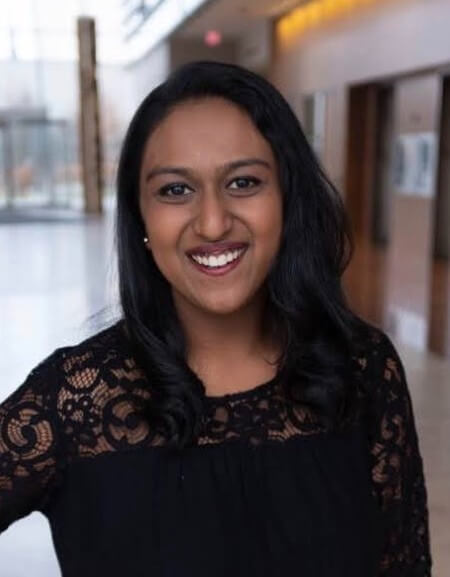
Name: Mahie Gopalka
Age: 21
Home state: Illinois
Education: BA in cognitive science from Northwestern University
School assignment: Baba Tonka Mathematical School in Ruse
Why did you choose Bulgaria as your living and teaching abroad experience?
As an undergraduate student, I happened to take a Balkan history class — with a focus on Bulgarian history — and I was so amazed and fascinated by this country and its rich history and culture. I knew I wanted to live here to be immersed in the culture at some point in my life, and this Fulbright ETA position was the perfect opportunity for me to connect with students and the community in Bulgaria.
What do you hope to convey to the young people you will be working with?
I hope to leave my students with the understanding that they are capable of achieving their dreams and that although the world seems daunting, they are more than prepared for it. I also hope to develop strong relationships with them and be there for them as a mentor — and show them that there will always be a person halfway across the world in Chicago, Illinois, rooting for them!
I also would love to highlight the role of immigrant experiences as a part of American culture, given my own background.
What do you hope to gain from the program?
I already feel as though I have gained so much in being given the opportunity to move here and work in such an enriching community. I hope to continue expanding my own world view and understanding of Bulgarian culture as I develop friendships and establish relationships with the people in my community and in my Fulbright ETA cohort.
Is there a social cause that you champion and that you’d like to pursue here in Bulgaria?
Back home, equal healthcare access was always an extremely important cause I have worked toward. I do not know much about the Bulgarian healthcare system, but I would love to get involved with health volunteering if possible!
Also, being a woman of South Asian descent, I have become more interested in the Roma discrimination in Bulgaria. I would love to learn more and find ways to support the Roma community in Ruse during my time here.
First impressions of Bulgaria
The natural beauty of Bulgaria was breath-taking immediately! During my five-hour bus ride to Ruse, I felt like I traveled through mountains, riverbeds, plains, and valleys. I also loved the architecture both in Ruse and in Sofia. My first impression of Bulgaria is also largely tied to my teachers and students, who have been incredibly welcoming and helpful!
First word you learned in Bulgarian: Благодаря!
Please finish the sentence: Before coming to Bulgaria, I never thought I’d… get to be a teacher, a mentor, and a friend to so many wonderful Bulgarian students.
